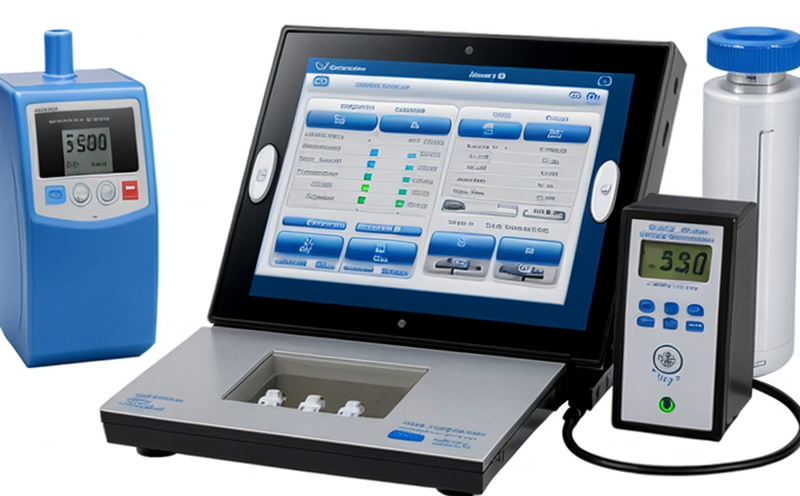Luer Lock Connection Integrity Testing
The luer lock connection is a critical component in medical devices that ensure safe and accurate delivery of drugs or fluids. This testing ensures the integrity, durability, and reliability of these connections under various conditions to prevent leakage, contamination, and failure during use.
The integrity test evaluates how well the luer locks onto other components like syringes or catheters. It involves subjecting the connection to mechanical stress through multiple cycles and then checking for any defects such as cracks, deformations, or leaks that could compromise patient safety.
During testing, a standardized force is applied to the luer lock using specific equipment designed to mimic real-world scenarios. The test typically includes cyclic loading of the connection at specified intervals until either failure occurs or after a predetermined number of cycles. Afterward, thorough inspection and analysis are conducted to determine if the connection meets all relevant standards.
Accurate testing is crucial not only for ensuring product quality but also for compliance with regulatory requirements such as ISO 10993-18:2017, which specifies biocompatibility evaluation procedures. Compliance ensures that medical devices meet rigorous safety and performance criteria before reaching the market.
Our laboratory uses advanced testing machines capable of simulating different types of stressors encountered during normal operation. These include hydraulic presses, tensile testers, and torque wrenches tailored specifically for luer lock applications. Our team has extensive experience in interpreting test results against industry standards to provide precise feedback on design improvements needed to enhance product performance.
Understanding the importance of luer lock integrity testing cannot be overstated given its role in safeguarding patient health by preventing adverse events associated with improper connections. By investing time and resources into thorough testing, manufacturers can build trust among healthcare providers and patients alike while avoiding costly recalls or legal issues down the line.
| Standard | Description |
|---|---|
| ISO 10993-18:2017 | Biocompatibility evaluation of medical devices. |
| ASTM F2465-19a | Mechanical performance testing for luer connectors. |
Industry Applications
- Intravenous (IV) infusion systems where precise dosing is essential.
- Syringe-based drug administration requiring reliable coupling between syringe and needle.
- Catheter assembly integrity for minimally invasive procedures.
- Drug delivery pumps ensuring consistent flow rates without interruptions or leaks.
| Application | Description |
|---|---|
| Intravenous Infusion Systems | Ensures accurate drug delivery and prevents contamination. |
| Syringe-Based Drug Administration | Maintains consistent force application during injection. |
| Catheter Assemblies | Guarantees proper sealing between catheter and connectors. |
| Drug Delivery Pumps | Avoids medication delivery errors due to faulty connections. |
Environmental and Sustainability Contributions
The rigorous testing of luer locks helps reduce waste by ensuring that medical devices function correctly from the outset, minimizing the need for replacements. This leads to cost savings for healthcare facilities while also supporting environmental sustainability goals.
- Reduces unnecessary device disposals due to premature failures.
- Promotes longer-lasting products which contribute positively to resource conservation efforts.
By adhering strictly to international standards, our laboratory ensures that all tests are conducted ethically and responsibly. This commitment extends beyond just the product itself but encompasses broader environmental considerations as well.





